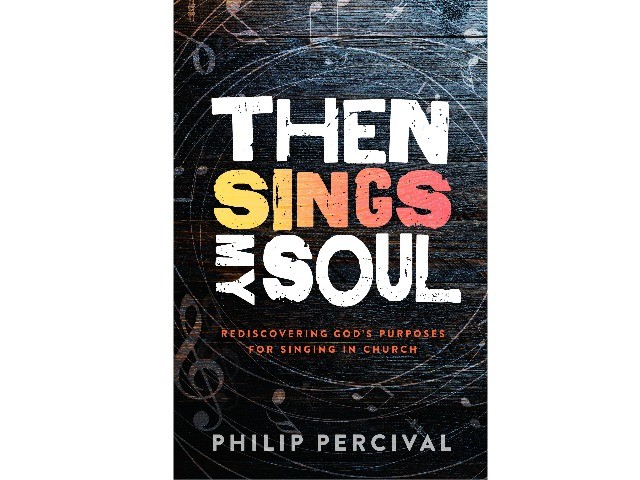Music in church is something everyone has an opinion about- some like hymns, others want only ‘modern’ music; some want drums, others only want the organ. Opinions are always available; they get in and can often wreak havoc bringing disunity to the church body. After years of being involved in playing in church music, I have seen (and held) my fair share of opinions- yet how much of it is simply personal preference and what exactly does the Bible have to say about these things?
In Then Sings My Soul (Matthias Media, 2015), Philip Percival aims to succinctly address these questions and issues. The book begins with establishing Biblical foundations, ensuring that readers understand just what the Bible does have to say about music and worship. He writes:
The New Testament singing passages, therefore, help us to understand our singing in terms of a three-way relationship: God ministers his word to us through the work of the Holy Spirit; we take part in that ministry as we sing and teach the word to one another; and we minister to God as we respond with thankfulness- all of which prepares us for works of thankful service.- p.56
Percival addresses issues such as the desire to ‘connect’ or ‘experience’ God through the music and expresses the importance of Word-based lyrics alongside an emotional connection. Percival writes:
God gives us song as a mouthpiece for the soul, for the expression of both truth and affection. But that will look different from church to church, as we are all wired differently as individuals and groups and cultures, according to God’s sovereign design for his people.- p.107
Percival also looks at the role of leadership in the singing, looking at song leaders in the Bible, the process of selecting the songs to sing, the writing of songs and the relationship between the song leader and the church congregational singing. Adding a series of appendices that cover: Deliberate Song Leading, Issues for Churches, Idolatry in Church Music and Church Musicians, Percival helpfully balances theology and issues of practical implementation.
I found Percival’s book a great foundation for looking at music in Church. It was surprising in such a short book that it is still ‘meaty,’ enabling a good biblical foundation to be laid and then using this foundation to enable churches to understand the gracious freedom that God allows in singing and music in church. Percival is gracious to the individual and encourages this love from the congregation:
The gospel demands that we lovingly accept and nurture the personalities God has given each of us. And it is important that we encourage an emotional response to the gospel in the whole congregation. But at the same time I also want to think about whether my own desire for self-expression/repression needs to be tempered, or amplified, for the good of my brothers and sisters. – p.105
In Then Sings My Soul, Percival addresses the need for authenticity in singing and music. This was a very poignant point and one that I wish he had spent a little more time unpacking. How does one teach, lead or encourage authenticity in the congregation’s response to the gospel? How does one work about bringing change to a church who are content with inauthentic singing and is there such a thing? If the congregation follows the leader and singing is a response to understanding the Word of God, how much about singing then, reflects the preaching? I found that this point of authenticity, was one that left me with further questions and I would have loved Percival to expand on.
Overall, a great read. Written in an easy tone with Biblical authority, I found that as I closed the book I wanted to order copies for all those who I have been involved in playing church music with, or in fact those who have an opinion about singing and music in church (and isn’t that the majority of us!) A helpful read for any Christian desiring to submit their opinions to the authority of God and His Word.








